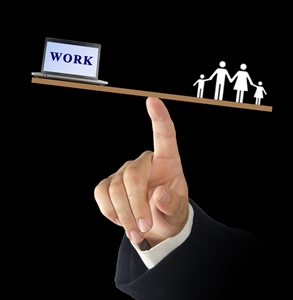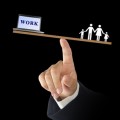
Whether it's a generous employee benefits package, a competitive salary, or a flexible work schedule, business owners offer a variety of perks to make a job more appealing.
Based on a recent survey, however, a majority of people are taking the bull by the horns and doing what they can to make their everyday life more pleasant.
By the looks of it, 2016 could be the year where more Americans reach the hard-to-achieve work-life balance equilibrium. More than half – 54 percent – of professionals say this is something that they'll do their best to attain by committing more resources to their personal life than their career, the Robert Half survey revealed. Meanwhile, roughly 40 percent say their focus will be on their occupation to arrive at a happy medium.
More workers intend to increase efforts for their bosses
Additionally, the poll also found that a number of workers said they will be more committed to their supervisor's needs. Nearly 30 percent of respondents said they intend to lengthen their strides this year to make their boss's life just a little bit easier. Just 16 percent said that this was something they wouldn't focus on quite as much compared to one year ago.
Paul McDonald, senior executive director at specialized staffing firm Robert Half, which commissioned the poll, stressed that providing staff with the tools needed to develop a good balance between work life and personal life serves as a reliable recruiting tool. This is especially important given that more employers are hiring.
"In a strong job market, professionals have more confidence in their career prospects, which gives them the breathing room to focus on interests outside of work," McDonald explained. "Companies that offer perks to help with work-life balance, such as generous vacation policies or the ability to telecommute, have a recruiting edge."
What employee benefits do workers like the most?
Some of the most well-received employee benefits include alternative work schedules – enabling employees to decide when they'll come into work so long as their responsibilities are completed – flex time, child care access and telecommuting. According to a recent article published in the Harvard Business Review, there's evidence to suggest that remote workers are often more productive than their in-office counterparts. They also have a greater sense of job satisfaction.
Though it sounds counterintuitive, providing workers with the extra rope they need to take care of their personal endeavors can increase productivity, the end game that virtually every business owner wants the most. It can also help workers be more punctual about arriving to work on time. It's estimated that approximately 1 in 4 workers come in late to work once a month at a minimum, according to a survey from online job search engine CareerBuilder. As many as 13 percent are late on a weekly basis.
Some of the more common excuses workers give for their tardiness include traffic jams, inclement weather, failure to set the alarm and public transportation delays.





